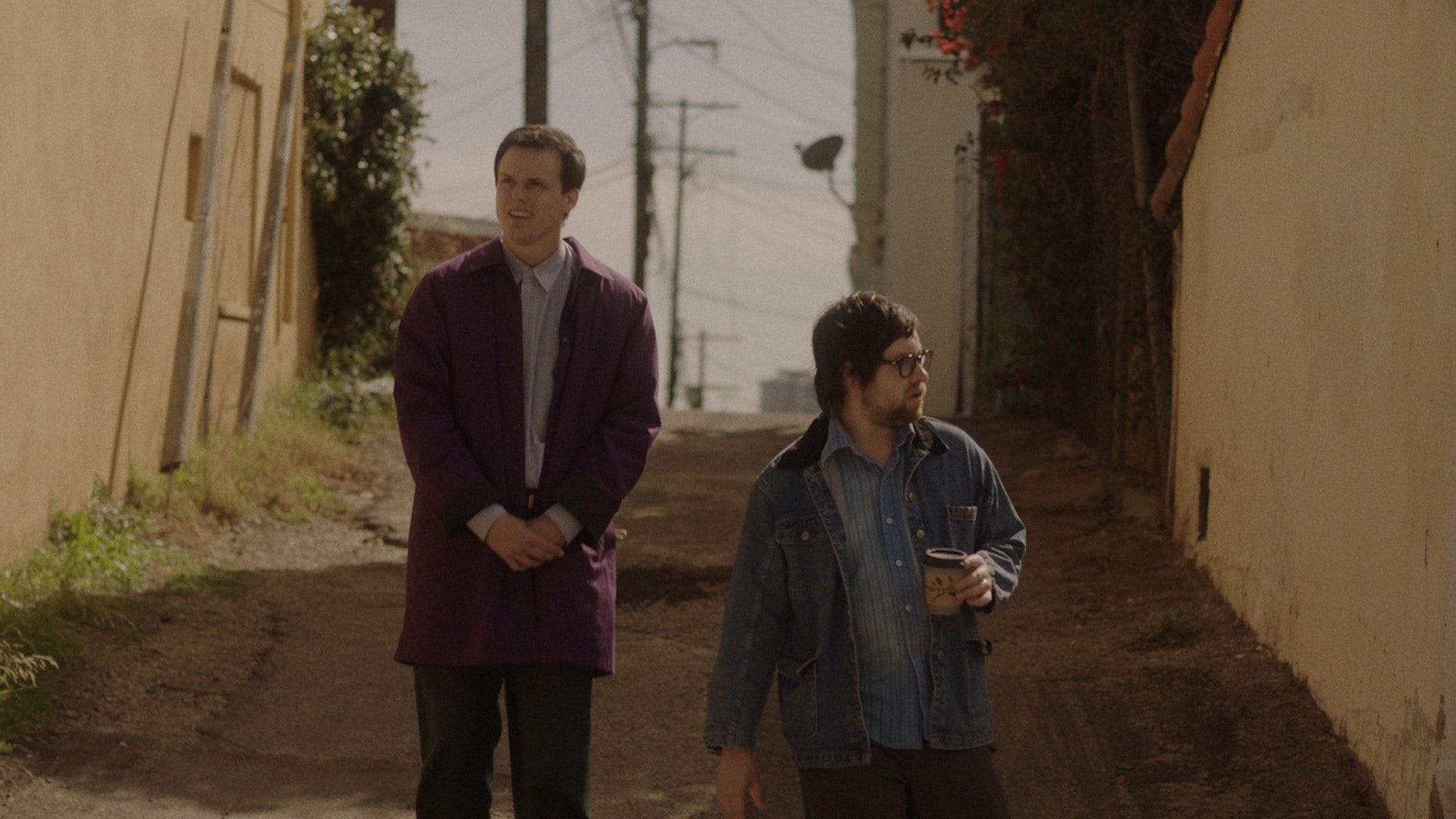For Clay, the man at the center of The Civil Dead, there isn’t much happening in life. Portrayed by director and co-writer Clay Tatum, he’s an unemployed LA photographer whose only friend appears to be his wife Whitney (Whitney Weir). When she leaves for several days on a work trip, she asks him to be productive and not just drink beer in the living room. Of course Clay does just that, and in a desperate attempt to get quick cash he pretends to put their apartment up for rent so he can collect application fees from hopeful renters. At first glance he’s a schlubby jerk (with a terrible haircut to boot), but his self-awareness and dry wit makes him affable, even if he’s content to do whatever it takes to avoid doing anything.
That harebrained scheme to steal from apartment-seekers amounts to a lot of set-up that’s justified once The Civil Dead takes an unexpected turn to its actual plot. When taking photos one day, he bumps into his old high school friend Whit (co-writer Whitmer Thomas), who insists they hang out; Clay reluctantly agrees. The next morning Whit reveals he’s actually a ghost and Clay is the only person who can see him. After confirming no one else can sense him, Clay’s shock soon gives way to annoyance–his supernatural ability saddles him with a needy companion.
That’s the hook of The Civil Dead, a grim yet charming slacker comedy whose drive comes from its stubborn insistence on staying low-key. A more conventional take on the same high concept might have Clay and Whit investigating what happened, finding a medium, or trying to convince others of what’s going on. Clay is not that kind of character–his only priorities are to either hang out with his wife or laze around when she’s not there–so his investigation amounts to a single Google search. He abandons his attempts to find another “haunted” person the moment he hits a dead end and won’t tell anyone else because he knows it will only lead to complications. And Whit’s new state of being is a sort of arbitrary purgatory: he can’t sleep, is unable to touch anything, and experiences time differently, and thus has to depend entirely on Clay to get around.
Some viewers will probably find the film’s inertness with story and scale frustrating, but Tatum and Thomas’ commitment and chemistry won me over. The fact that both leads are real-life friends goes a long way, given the baggy pacing and some of the more uneven comedic moments, and Tatum’s usage of long takes helps increase the awkward tension of both characters’ forced arrangement. The Civil Dead’s refusal to expand beyond the limited perspectives of its two protagonists, and its treatment of an extraordinary situation as little more than inconvenience, is admirable enough to make for a funny, entertaining experience. And its great ending, which deploys a sly twist that echoes back to the opening, shows both filmmakers to be more clever than their modest approach would suggest.
The Civil Dead opens on February 3 and will expand ahead of a digital release on February 17.

